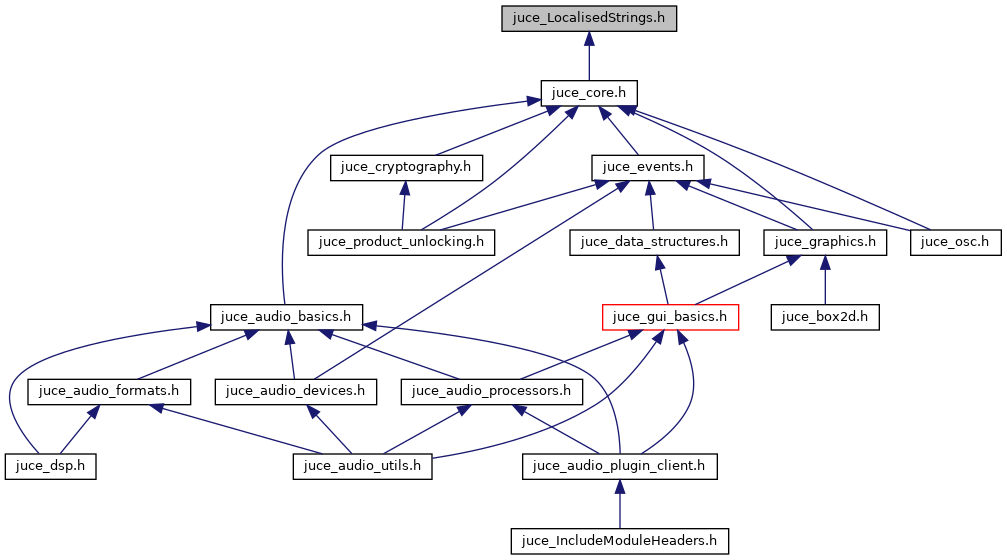
Classes | |
| class | juce::LocalisedStrings |
| Used to convert strings to localised foreign-language versions. More... | |
Namespaces | |
| namespace | juce |
Macros | |
| #define | NEEDS_TRANS(stringLiteral) (stringLiteral) |
| A dummy version of the TRANS macro, used to indicate a string literal that should be added to the translation file by source-code scanner tools. | |
| #define | TRANS(stringLiteral) juce::translate (stringLiteral) |
| Uses the LocalisedStrings class to translate the given string literal. | |
Functions | |
| String | juce::translate (CharPointer_UTF8 stringLiteral) |
| Uses the LocalisedStrings class to translate the given string literal. | |
| String | juce::translate (const char *stringLiteral) |
| Uses the LocalisedStrings class to translate the given string literal. | |
| String | juce::translate (const String &stringLiteral) |
| Uses the LocalisedStrings class to translate the given string literal. | |
| String | juce::translate (const String &stringLiteral, const String &resultIfNotFound) |
| Uses the LocalisedStrings class to translate the given string literal. | |
| #define NEEDS_TRANS | ( | stringLiteral | ) | (stringLiteral) |
A dummy version of the TRANS macro, used to indicate a string literal that should be added to the translation file by source-code scanner tools.
Wrapping a string literal in this macro has no effect, but by using it around strings that your app needs to translate at a later stage, it lets automatic code-scanning tools find this string and add it to the list of strings that need translation.
| #define TRANS | ( | stringLiteral | ) | juce::translate (stringLiteral) |
Uses the LocalisedStrings class to translate the given string literal.
This macro is provided for backwards-compatibility, and just calls the translate() function. In new code, it's recommended that you just call translate() directly instead, and avoid using macros.